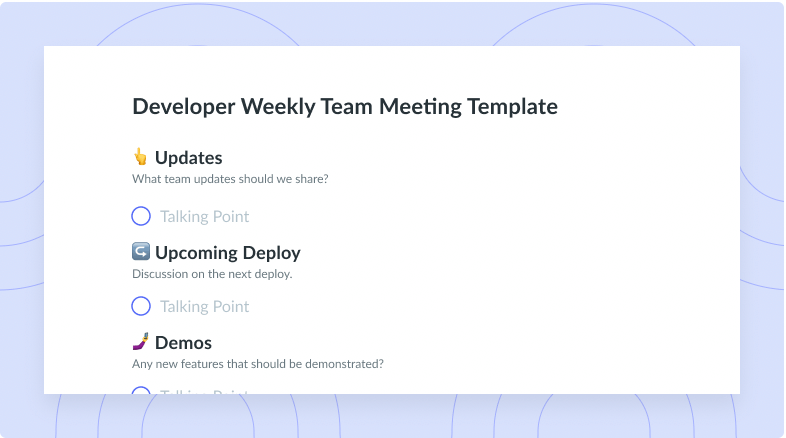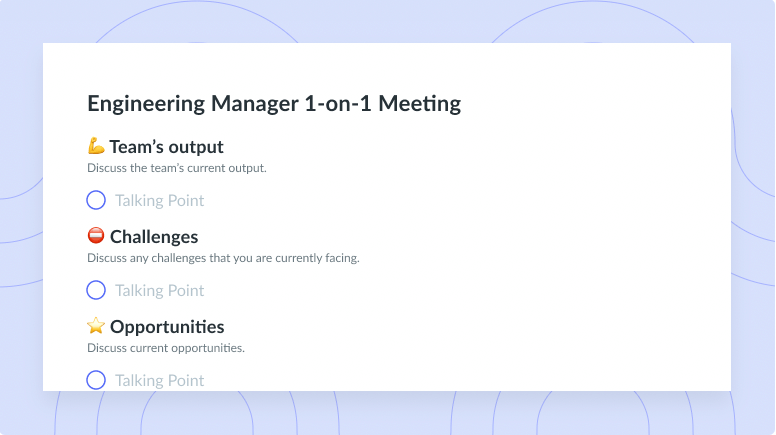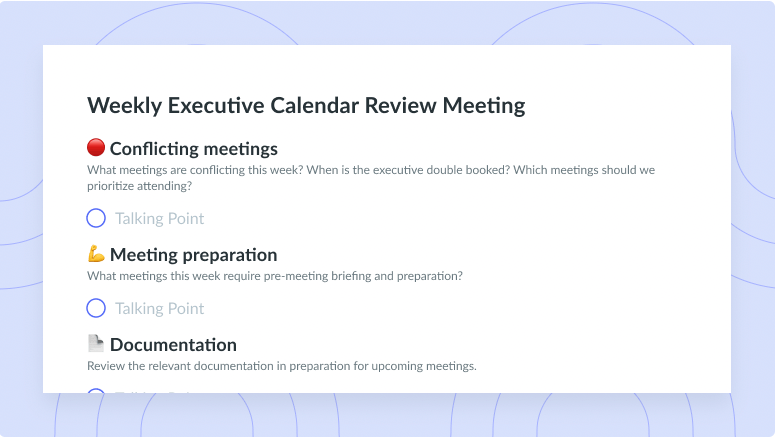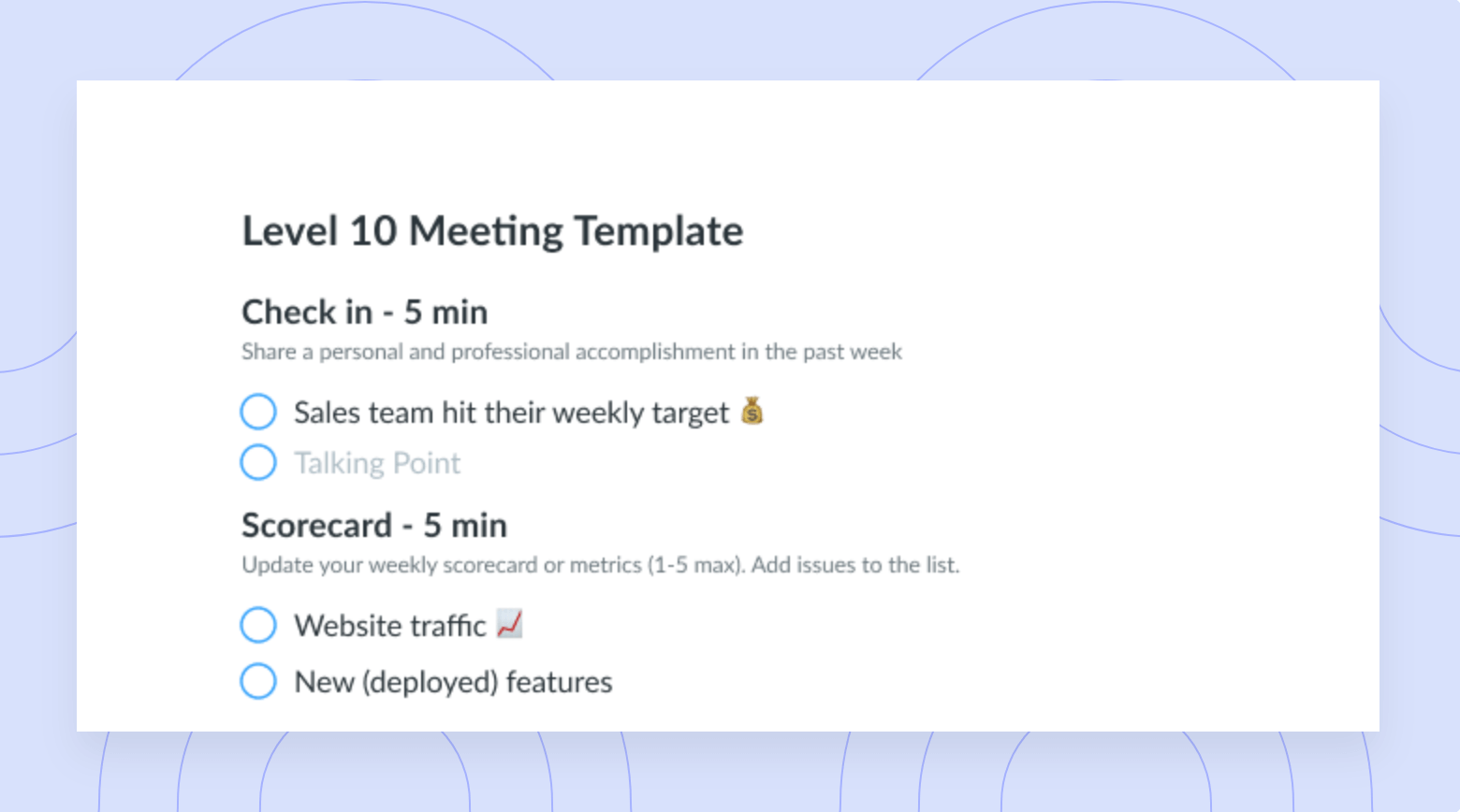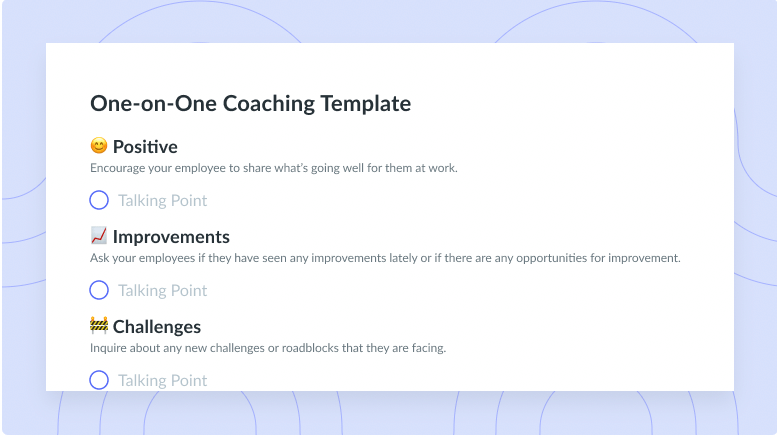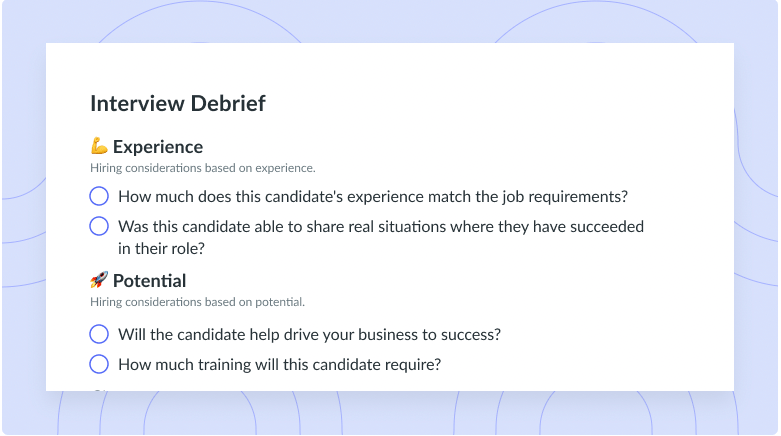
Meeting Policy Template
Get this templateSet clear expectations around meeting habits and behaviours in your company.


This meeting policy was created with the purpose of setting clear expectations around meeting habits and behaviours in our company. Meeting facilitators and attendees should follow the guidelines in this policy to ensure that meetings are an inclusive, collaborative, and good use of everyone’s time.
What’s inside this Meeting Policy Template:
1 🎯 Objectives
Discuss what we want to achieve during meetings at this company.
2👤 Roles
List the different roles that meetings should have:
- Organizer
- Host
- Attendees
- Optional or Informed Participants
A meeting organizer is an individual who scheduled the meeting, sent invitations to those who are essential to attend and shared the meeting agenda prior to the meeting. The organizer should set the objectives and goals of the meeting ahead of time, meaning you and all of the meeting participants have a clear understanding of why the meeting is taking place and what will be discussed. Make sure to think twice about who you’re inviting and let your meeting agenda guide that decision!
Hosts should facilitate the timely and productive execution of meetings. It’s your job to keep the meeting on track in terms of time and productivity to achieve your objective. It’s also your responsibility to ensure psychological safety for everyone involved, meaning ensuring the environment is welcoming, everyone is being heard and participation is balanced. Don’t forget to double-check that all of the decisions, next steps, and tasks are documented in detail, include due dates, and are assigned to specific participants, so everyone knows what they’re responsible for.
Attendees come prepared to every meeting by having read the agenda, pre-reading, and completing any prep-work or outstanding action items. Attendees collectively take notes so the host can focus on facilitating. It’s a good practice to rotate the role of notetaker amongst attendees for recurring meetings.
Optional or informed participants may or may not be able to attend a meeting. These attendees should take it upon themselves to review the post-meeting report. If any questions arise they should direct these to the host of the meeting.
3 📕 Playbook
Discuss what the meeting playbook will look like. This includes what we should be doing before, during and after meetings.
4 💬 Psychological Safety
Discuss what psychological safety in meetings looks like.
Some examples include:
- Restate important points made by attendees.
- Loopback around to attendees trying to speak.
- Throughout the conversation, create space for quieter attendees to express their opinion (for example, by asking them what they think).
- Never give constructive individual feedback in a team meeting; save this for one-on-one meetings. Positive feedback is welcome in a team setting!
- Don’t hold side conversations while someone is speaking.
- For hybrid meetings, focus your attention equally on the people in the room and the camera.
5 📏 Measuring Success
Discuss how we can measure meeting effectiveness.
Some examples include:
- Send a feedback request immediately after the meeting for one-time discussions and on a quarterly basis for recurring meetings to measure effectiveness.
- Communicate how you’ll implement changes based on the team’s feedback in your next meeting. However, avoid mentioning who shared the feedback.
- Another way to measure meeting effectiveness is to look back at the action items tab to understand if tasks are being completed on time, and if there are any blockers or insightful patterns developing.











![Incoming Client Interview [Legal Clinic] Template](https://fellow.app/wp-content/uploads/2021/09/Incoming-Client-Interview-Legal-Clinic-preview.png)
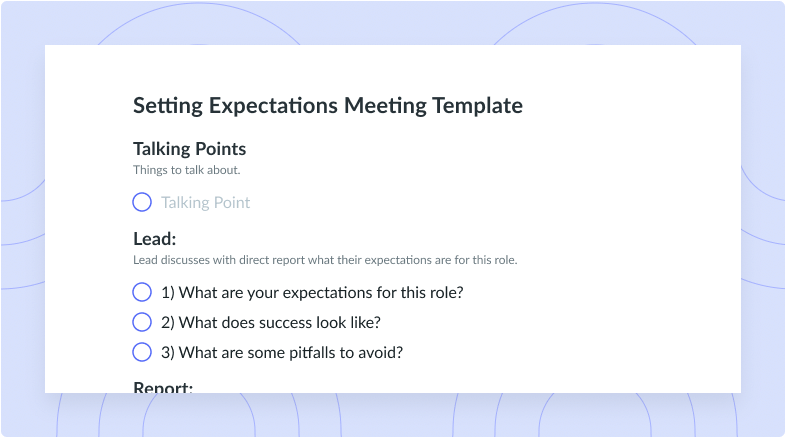
![What? So What? Now What? [Reflection Meeting] Template](https://fellow.app/wp-content/uploads/2021/08/What-So-What-Now-what-preview-v2.png)
